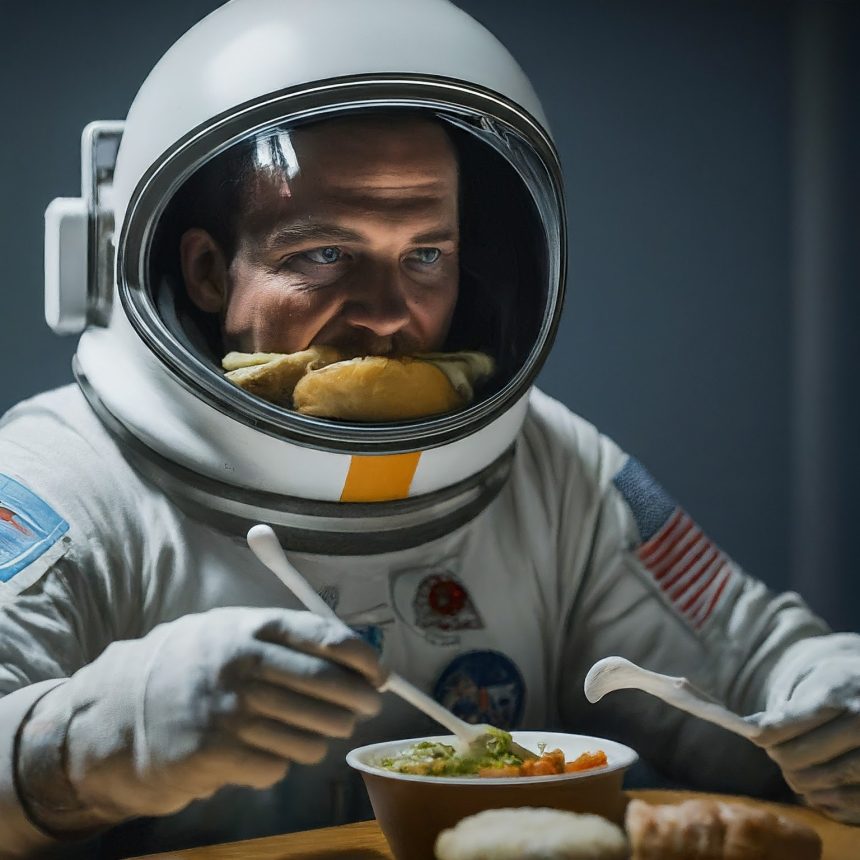While space travel offers breathtaking views and the opportunity to push the boundaries of human exploration, it also presents unique culinary challenges. The zero-gravity environment of space requires modifications to our usual eating habits, with some familiar foods strictly off the menu.
Crumbs: The Zero-Gravity Menace
Crumbly foods like bread, cookies, and crackers top the list of banned space snacks. In zero-gravity, these crumbs don’t simply fall on a plate—they float ominously. These tiny particles can clog vents, contaminate sensitive equipment, and even make their way into astronauts’ eyes, ears, and noses – a significant hazard in space. Instead, astronauts opt for flour tortillas, which are less prone to leaving a trail of debris.
Say Goodbye to Salt and Pepper
Astronauts can’t season their food with shakers full of salt and pepper. The individual grains, like their crumb counterparts, float freely and pose the same risks as above. These seasonings are instead provided in liquid form, ensuring a touch of flavor without the cleanup hazards.
Soda – An Earthbound Fizz
Carbonated beverages like soda are off-limits on space missions. The lack of gravity prevents the release of carbon dioxide bubbles in the same way they do on Earth. Inside an astronaut’s stomach, this means trapped gas and potential discomfort – not ideal when orbiting the planet.
Alcohol: Not a Spaceflight Staple
Although Russian cosmonauts have a history of limited alcohol consumption in space, NASA maintains a strict no-alcohol policy for its astronauts. In addition to impairment concerns, alcohol’s diuretic effects can lead to dehydration, a dangerous issue in the closed environment of a spacecraft.
Challenges Beyond the Banned List
Even items permitted in space often require alteration. Fresh fruits and vegetables have a short shelf life, so most food must be dehydrated, freeze-dried, thermostabilized, or irradiated to prevent spoilage. Mealtimes require rehydrating ingredients or carefully heating in specialized space ovens. Condiments like ketchup and mustard must come in squeeze pouches instead of traditional bottles.
Innovations in Space Cuisine
The dietary restrictions in space have sparked constant innovation. Food scientists develop tasty, safe, and long-lasting meals that support astronauts’ health and well-being during extended missions. Experiments in space farming aim to one day bring fresh harvests to orbiting crews.
While life in space differs radically from everyday meals on Earth, astronauts have adapted their habits. One day, future explorers may dine on more familiar cuisine, adding extra zest to their missions among the stars.








